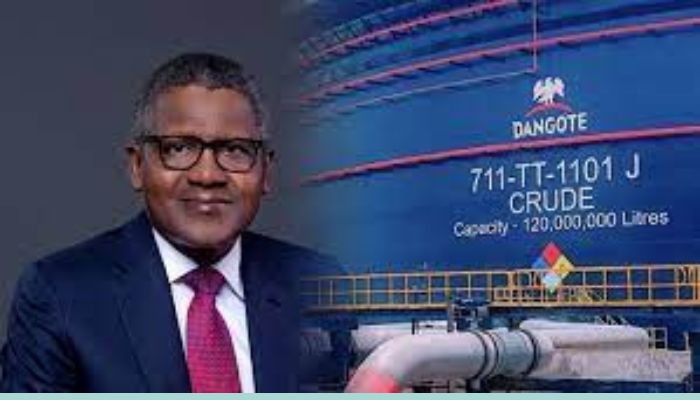Private depots in Lagos and surrounding areas were largely deserted on Monday as the Dangote Petroleum Refinery began direct supply of petrol to marketers, reshaping dynamics in Nigeria’s downstream petroleum sector.
Market checks showed that many depot operators recorded skeletal operations, with industry insiders attributing the decline to expectations of benefiting from the refinery’s direct supplies.
Olatide Jeremiah, Chief Executive Officer of Petroleumprice.ng, described the move as a turning point for the downstream market.
“The sector is currently destabilised as the new market leader (Dangote) is calling the shots. The rollout of 1,000 trucks on Monday has heightened tensions among depot owners and retailers, causing a sharp decline in purchases,” Jeremiah explained.
Read also: Fuel queues now history – Dangote
He added that for the first time, global oil prices are rising while domestic depot prices are falling, crediting the Dangote Refinery for reshaping local market forces. “By and large, this revolution will drive the industry to embrace best practices and stabilise pump prices,” he said.
Speaking at a conference to mark the first anniversary of the launch of petrol from the 650,000 barrels-per-day refinery, Aliko Dangote, President/Chief Executive of Dangote Petroleum Refinery, said the project had significantly improved Nigeria’s energy security.
Dangote noted that Nigerians have faced persistent fuel queues since 1975, a problem that began easing when the refinery started rolling out petrol on 15 September 2024. “We have been battling fuel queues since 1975, but today Nigerians are witnessing a new era,” he said.
Reflecting on the difficulties faced during the project, Dangote said the refinery was a bold and risky undertaking, often dismissed by experts and government officials who insisted that such ventures were best left to sovereign nations.
Read also: If refinery failed, I would have lost all my assets to banks – Aliko Dangote
“The journey has been challenging because we sought to transform Nigeria’s downstream sector. Some believed we were taking food from their tables, which simply isn’t true. What we have done is to make our country and continent proud,” he stressed.
He added that before the refinery began operations, only two African countries were not dependent on petrol imports, but both have since resumed importing, underscoring the vulnerability of the continent.
Dangote admitted that the risks were immense, with lenders poised to seize his assets if the refinery failed. “The decision to build the refinery was not easy. If it had gone wrong, lenders would have taken our assets. But we believed in Nigeria and Africa,” he said.
Industry analysts argue that the refinery’s success is not only reshaping Nigeria’s fuel supply chain but also positioning Africa to reduce its dependence on imports, stabilise energy costs, and strengthen regional energy security.
With direct supplies now underway and depot activity declining, stakeholders say the refinery is firmly establishing itself as the dominant force in Nigeria’s downstream market.









